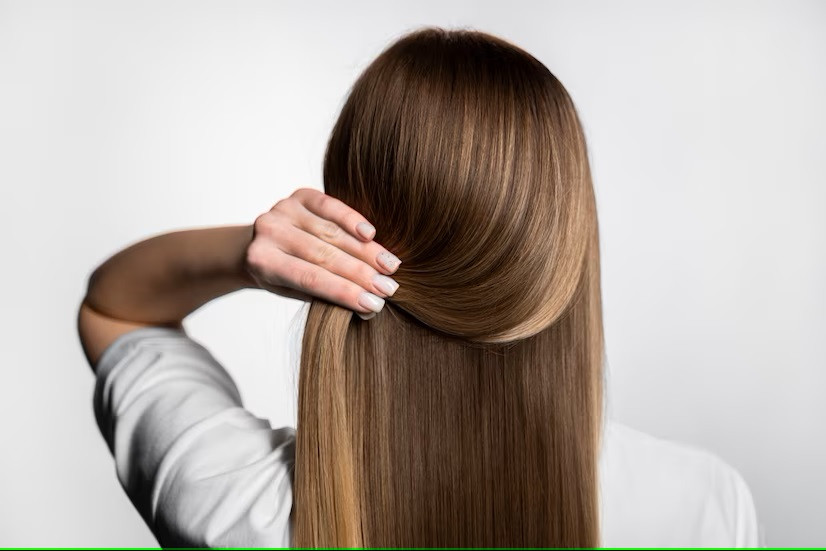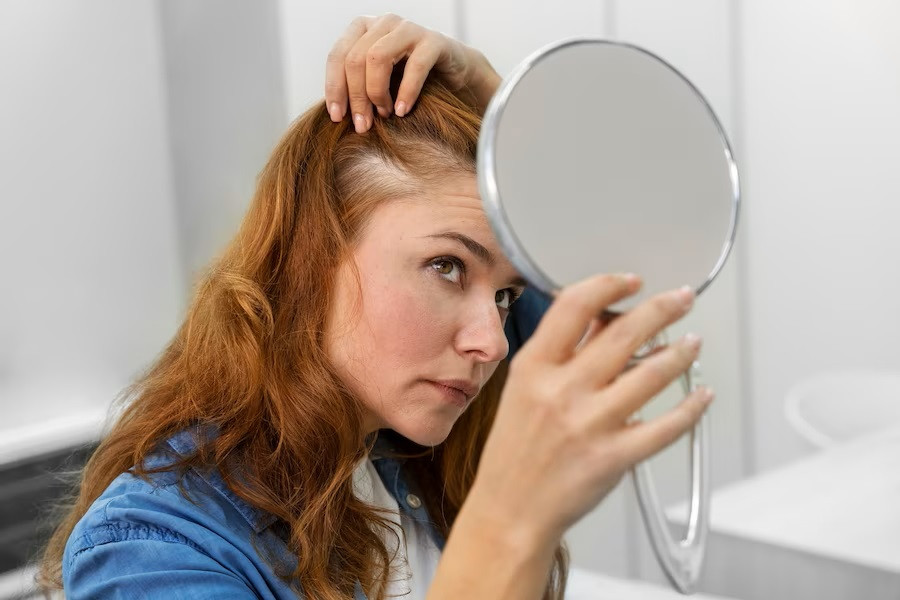Hair loss can result from age or certain health issues. Supporting hair growth through adequate nutrition may help hair grow healthier and stronger.
Folic acid is a nutrient often used for hair health. But is it truly effective in promoting hair growth? Here’s a closer look.
Benefits of Folic Acid
Folic acid, a synthetic form of vitamin B9 (folate), plays a role in red blood cell production and helps prevent anemia. It’s also prevalent in tissues like skin, hair, and nails. Taking folic acid supplements is thought to potentially aid in better hair growth.
According to Byrdie, some benefits of folic acid for hair include:
- Promotes new hair growth: Folic acid aids in hair keratinization during active growth, supporting faster hair growth.
- Prevents premature graying: Gray hair occurs when follicles lose melanin, the pigment responsible for color. Folic acid helps maintain the production of oxygen-rich red blood cells, essential for pigmentation.
- Reduces hair loss: The body needs folic acid across various tissues. If deficient, folic acid is prioritized for vital organs, potentially leading to hair loss.
- Thickens hair: Folic acid deficiency has been associated with thinner hair.
Is Folic Acid Truly Effective for Hair Growth?
Research is still limited on the specific effects of folic acid on hair growth, and more studies are necessary to understand this relationship.
For adults, a daily intake of 400 mcg of folic acid is recommended. If daily diet falls short, folic acid supplements can help. A deficiency in folic acid may present with symptoms such as:
- Headache
- Irritability
- Pale skin
- Thinning hair
However, if you already get enough folic acid, taking more won’t accelerate hair growth. Exceeding 400 mcg per day could lead to side effects, such as digestive issues.
How to Stimulate Faster Hair Growth
Taking folic acid isn’t the only method for encouraging hair growth or preventing hair loss. Experts agree that a balanced lifestyle, suitable hair care, and meeting nutritional needs all play vital roles in hair health.
Here are some tips for supporting hair growth:
Avoid extreme diets
Overly restrictive diets can result in nutrient deficiencies that may harm hair. Aside from folic acid, essential nutrients for healthy hair include:
- Protein
- Iron
- Fatty acids
- Selenium
- Vitamins D, E, and A
Limit chemical exposure to hair
Styling treatments like dyeing, straightening, or curling can damage hair. Using conditioners and hair vitamins can help counteract the effects of frequent styling.
Manage stress effectively
Stress can contribute to hair loss and brittleness. To reduce stress, try relaxation exercises, yoga, regular physical activity, and ensure adequate rest.
Various factors influence hair growth, including nutrition. Before using folic acid supplements to address hair loss, it’s best to consult a healthcare provider. If hair issues persist, consider visiting a doctor or using the Ai Care app’s consultation feature.
Interested in more tips on nutrition, diet, and food? Click here!
- dr Hanifa Rahma
Rubell, A. (2022). Folic Acid For Hair: Benefits and How to Use It. Available from: https://www.byrdie.com/folic-acid-for-hair-growth-5083159
Cherney, K. (2019). Does Folic Acid Help with Hair Growth?. Available from: https://www.healthline.com/health/folic-acid-for-hair
Rubell, A. (2024). Does Folic Acid Promote Hair Growth? Experts Weigh In. Available from: https://www.byrdie.com/folic-acid-for-hair-8706985
Battaglia, C. (2024). Vitamins and Minerals That Support Hair Growth and Health. Available from: https://www.health.com/vitamins-for-hair-growth-8637775
Lindberg, S. (2024). How To Make Your Hair Grow Faster and Stronger. Available from: https://www.healthline.com/health/what-makes-hair-grow












